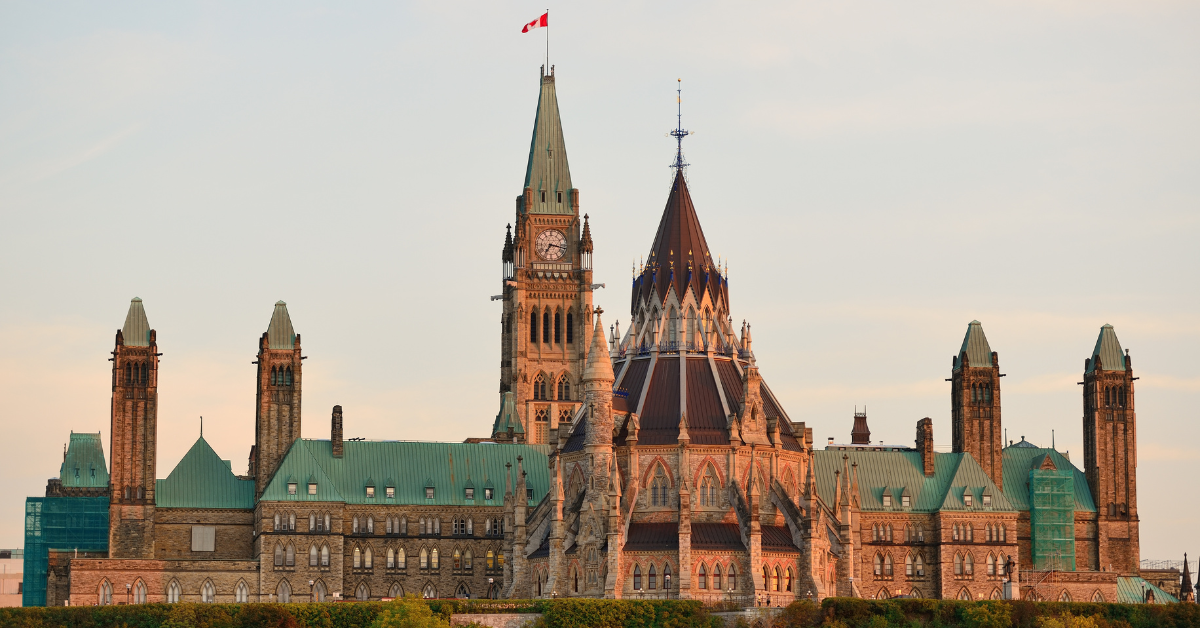Our 2025 Federal Budget article highlights the matters most relevant to the majority of our business owner clients. Click here to download our comprehensive Federal Budget commentary.
On November 4, 2025, Finance Minister François-Philippe Champagne presented Budget 2025 — Canada Strong to the House of Commons. While no changes were proposed to personal or corporate tax rates, the Budget introduced or confirmed several initiatives relevant to private business owners and entrepreneurs.
The government projects a 2024–25 deficit of $36.3 billion, rising to $78.3 billion in 2025–26, then gradually declining through 2029–30.
Below, we highlight the most important tax and policy updates for Canadian-controlled private corporations (CCPCs), professionals, and business leaders.
Key Takeaways for Business Owners
- Capital Investment: Accelerated depreciation to create a strong incentive to modernize operations and invest in productivity.
- R&D and Innovation: The enhanced SR&ED credit limit (now $6 million) allows for increased private-sector innovation incentives.
- Clean Economy: Expanded credits for clean manufacturing, critical minerals, and carbon capture utilization and storage (CCUS) create new opportunities for diversification.
- Luxury and Housing Tax Relief: The Luxury Tax on aircraft and vessels is removed (remaining on high-value vehicles), and the Underused Housing Tax is eliminated as of 2025, reducing costs and administrative burden for asset-owning businesses and individuals.
- Trust Reporting and NPO Reporting Deferral: Bare trust filing requirements are deferred to 2026, and expanded NPO reporting postponed to 2027, giving organizations more time to prepare.
Business Measures: Supporting Investment and Productivity
Budget 2025 renews its focus on helping Canadian businesses invest, expand, and innovate through accelerated deductions and targeted incentives.
Accelerated Capital Cost Allowance (CCA) — “Productivity Super-Deduction”
- Accelerated Investment Incentive (AII): Businesses can claim up to 3× the normal first-year CCA on most capital asset additions made by businesses beginning January 1, 2025. A 100% deduction can be claimed if the addition is manufacturing or processing machinery and equipment, clean energy generation equipment, clean energy conservation equipment or zero-emission vehicles. These incentives run through 2029, with a gradual phase-out from 2030–2034
- Immediate expensing for manufacturing and processing buildings allows 100% deduction in the year of acquisition (for property used before 2030).
These measures are designed to stimulate capital investment and productivity, particularly for manufacturers and processors modernizing facilities or adopting advanced technologies.
Reinstated Accelerated CCA for Low-Carbon LNG Facilities
Accelerated CCA (30% for equipment; 10% for related buildings) returns for low-carbon LNG facilities, effective for property acquired after November 4, 2025, and before 2035.
SR&ED Tax Credit Enhancements
- The SR&ED expenditure limit increases from $4.5 million to $6 million for qualifying expenditures.
- The taxable capital phase-out range expands, allowing more CCPCs to qualify.
- Capital expenditures are again eligible for both deduction and investment tax credit.
These updates strengthen the incentive for innovation, research, and digital transformation within Canada’s private sector.
Dividend Refund Anti-Avoidance for Tiered Corporate Groups
A new anti-deferral rule will delay dividend refunds in corporate groups with mismatched year-ends to prevent temporary tax deferrals on investment income. This change will require strategic review of dividend planning for CCPC groups beginning taxation years after November 4, 2025.
Administration and Compliance Updates
Bare Trust and NPO Filing Deferrals
Recognizing administrative challenges, the budget defers bare trust reporting until the 2026 tax year and expanded NPO reporting until 2027 — offering relief to organizations still adjusting to new transparency and disclosure rules. The deferral also provides the government additional time to fine tune these rules to limit administrative burden.
Underused Housing and Luxury Taxes
Two significant rollbacks were announced:
- Underused Housing Tax (UHT) eliminated as of 2025.
- Luxury Tax removed for aircraft and vessels, but remains on vehicles valued over $100,000
Clean Economy Incentives
Budget 2025 continues Ottawa’s commitment to green investment and energy transition.
- Expanded Critical Mineral Exploration Tax Credit (CMETC): Now includes 12 new critical minerals.
- Clean Technology Manufacturing Credit: Eligibility expanded to include new machinery and equipment used to extract, process or recycle 5 new critical minerals essential for clean technology supply chains.
- Carbon Capture, Utilization, and Storage (CCUS) Credit: Full rates extended to 2035, before declining in 2036.
- Clean Electricity ITC: Expanded to allow businesses to receive financing from the Canada Growth Fund without reducing eligible property value for the purpose of computing the credit.
Personal and Other Highlights
- Confirmed reducing the lowest marginal personal income tax rate from 15% to 14.5% for 2025 and then to 14% for 2026.
- Automatic tax filing for low-income individuals begins for 2025 returns.
- 5% refundable tax credit for personal support workers employed by eligible healthcare establishments (2026–2030).
- Top-up credit to maintain the full 15% value for non-refundable credits.
- Home Accessibility Tax Credit tightened to prevent double-dipping with the medical expense credit.
- A one-time supplemental Canada Disability Benefit payment of $150 in respect of each disability tax credit certification or re-certification.
Final Thoughts
The 2025 Federal Budget maintains stability in tax rates while refining incentives that reward productivity, innovation, and environmental transition. Private businesses should review capital planning, corporate structures, and compliance systems in light of these measures.
For customized advice on how Budget 2025 impacts your business or any other accounting, tax planning, or business advisory matters, please contact your Bateman MacKay Business Advisor. Topical accounting, tax, and business advisory articles pertinent to business owners can be accessed by subscribing to our blog and following us on LinkedIn.




